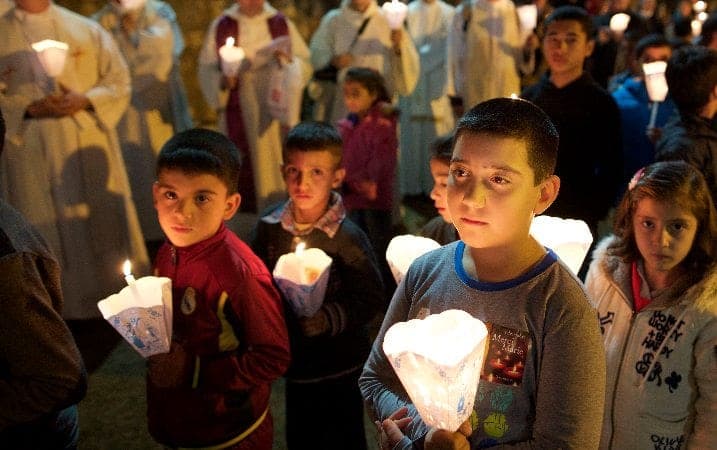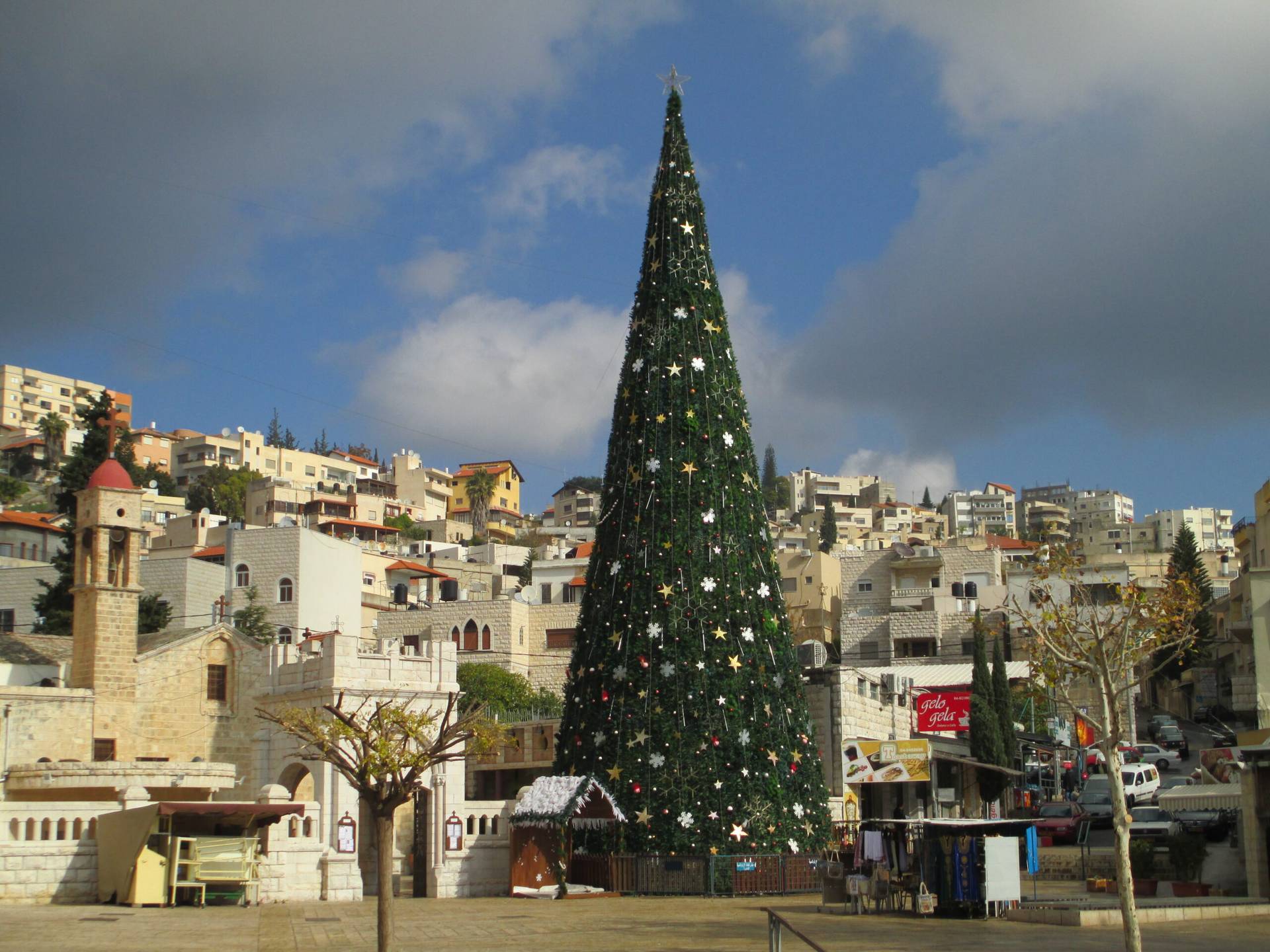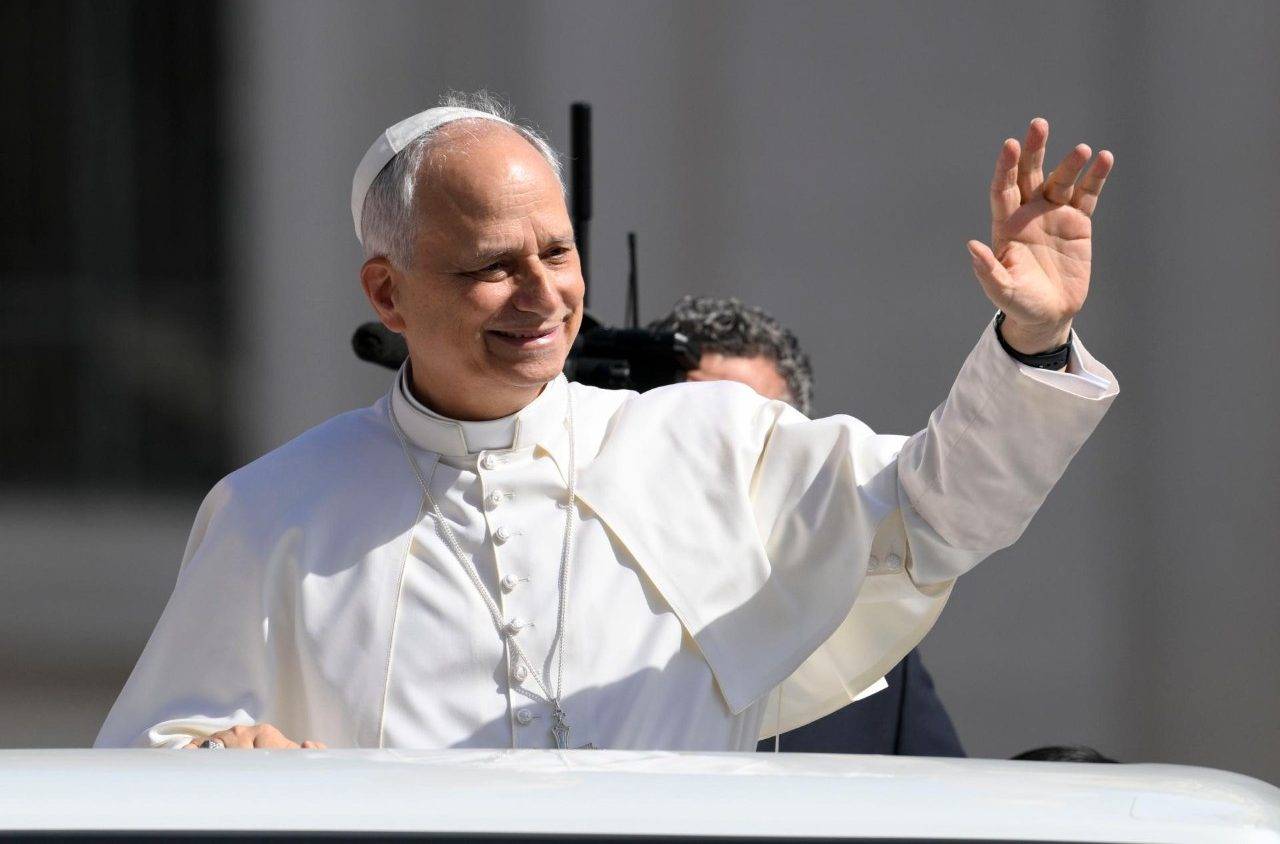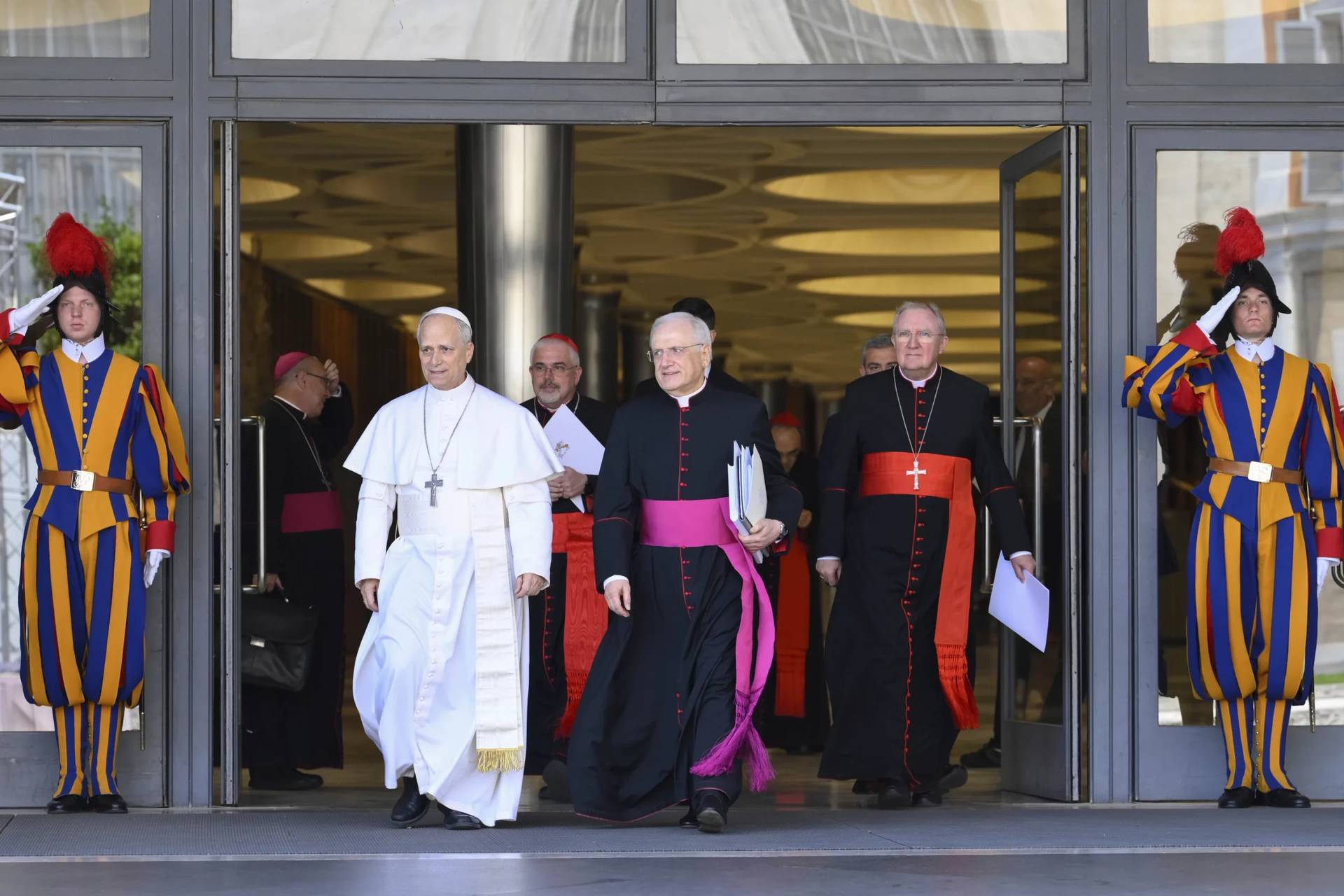Sifting through the details contained in the newly released report of the Chilcot Inquiry, which offers a searing indictment of the decision of British Prime Minister Tony Blair to join the U.S. in going to war in Iraq in 2003, obviously will take time.
As Austen Ivereigh noted for Crux yesterday, the total verbiage contained in the report’s 12 volumes exceeds the length of the Bible by a factor of three, so nobody can absorb all of it in a flash.
In the meantime, here’s one nugget that merits its moment in the sun: Among the other reasons cited as to why the war was a mistake, the report finds that warnings from local Christians were ignored.
“The Iraqi Christian community was concerned that it risked marginalization, with some senior figures worrying about what would happen to their community if the current Iraqi regime fell or changed,” the report said, referencing feedback given by a junior official from the British embassy in Amman following a seven-day visit to Iraq in January 2002.
In reality, one hardly needed a painstaking government inquiry to reach that conclusion.
Iraq’s Christian leadership was vocally insistent, both in the run-up to the war and its aftermath, that removing Hussein by force without an effective plan for achieving stability was destined to make their lives worse. Those sentiments were a large part of the reason the Vatican was adamantly opposed to the conflict.
Naturally, it’s not that baptism or ordination affords Christians any special insight into foreign policy, nor that their lives and property are worth more than anyone else’s.
However, in parts of the world where Christians live as a minority, they are often in a privileged position to act as bellwethers about the impact of policy choices on minority groups. Because of their contacts in the West, they also generally have better opportunities for making their voices heard – assuming, of course, someone’s prepared to listen.
Here are three examples today of where Christian voices have something to say about foreign policy decisions facing the world’s major powers, including the United States.
India
In broad strokes, America’s “Asian policy” for the last couple of decades has been to promote the emergence of India as a regional power, largely in order to counter China’s influence.
As part of that picture, Indian Prime Minister Narendra Modi has visited the White House to meet President Barack Obama twice in the last two years, most recently in June, with press reports gushing over the “chemistry” between the two men.
Christians in India represent only 2.3 percent of the country, but given its vast population, that still works out to a robust pool of 27.8 million people. Many of them right now would say, “beware of touting Modi, because the cure may be worse than the disease.”
Since he came to power in 2014, backed by India’s right-wing Hindu nationalist movements, Modi has aggressively promoted what critics deride as the “saffronisation” of India, meaning imposing Hindu practices and values with the power of the state and curtailing minority rights.
In some parts of the country, including Chhattisgarh, Madhya Pradesh and elsewhere, physical assaults on Christian targets have become routine, generally with impunity for the perpetrators. One watchdog group estimates there’s now a physical assault on a Christian somewhere in India every other day of the year.
It’s not just Christians but all minorities who feel menaced by Modi’s regime, prominently including Muslims.
Syria
Western officials have made it clear, both explicitly and implicitly, that they want Bashar al-Assad removed in Syria. Last December, for instance, German Chancellor Angela Merkel told the Bundestag “Assad can never be part of a long-term solution,” drawing vigorous applause.
Famously, a leaked internal memo recently showed 50 officials in the U.S. State Department urging the Obama administration to use military force against Assad to compel him to end his violations of a cease-fire.
That’s not quite the line you get, however, from many of the country’s Christians.
In general, Christians are well aware of Assad’s many flaws, but they argue that the realistic alternative would be worse. That’s hardly a theoretical position, since they see that option staring them in the face across the front lines of Syria’s civil war – it’s ISIS or some other form of Islamic radicalism.
Last October, Syrian Patriarch Ignace Joseph III Younan was asked by a French TV journalist how he could justify supporting a “monster” like Assad. In reply, he told the story of a Capuchin priest who was sheltering four Missionaries of Charity and 12 elderly women in his parish center as Islamist forces closed in. The priest called the government, which dispatched troops to evacuate them all and take them to safety in Damascus.
“Now,” Patriarch Younan had said to the French news-show host, “you can judge for yourself if this person, Assad, is a monster or not.”
I recall chatting with a group of young Syrian Christians during the 2013 World Youth Day in Brazil. All were bright, articulate professionals – a couple worked in IT, one was a publisher, and so on. They were precisely the sort of future leaders Syrian society will need if it’s ever to achieve stability.
At one point I asked the group, “What will you do if Assad falls?” Every one of them – every one – said they’d be on the next plane out, because they were convinced whatever would follow would be worse.
Nigeria
Without a doubt, Christians in northern Nigeria, where they live as a small minority amid a Muslim majority, support efforts to break the back of Boko Haram, the radical Muslim terrorist group that has made Christians a primary target.
However, what they will also add, and it’s often overlooked by Western activists and policy-makers, is that military and security measures are not enough. If you really want to ensure peace, they say, you’ve got to fix the underlying disease of which Boko Haram is merely the most virulent symptom.
“By now, ‘Boko Haram’ is really just a metaphor for all sorts of resentments being expressed by citizens and groups against the corruption of the Nigerian state,” said Bishop Matthew Kukah of Sokoto, located in extreme northwestern Nigeria near the border with Niger, in an April interview with Crux.
Sokoto is overwhelmingly Muslim and the seat of the former “Sokoto Caliphate.” Kukah’s tiny flock of around 30,000 Catholics is about .2 percent of the population.
“Whether we see more Boko Haram-style violence depends in part on how the government tackles the deep problems we face – how it ends up dealing with the problems of the Shi’ites, for instance, or how it responds to the movement in Biafra,” Kukah said
“They have to deal with a serious problem in the quality of social services, the fact that so many young people don’t have jobs and are living nasty, brutish lives,” he said.
“That’s how Boko Haram got started in the first place – they called attention to the corruption of the state, and said, ‘We can offer you something better.’ Right now, there are a lot of voices saying the status quo isn’t working, and until those problems are addressed, the situation will continue to be volatile.”
That, too, is probably an insight worth considering as the world’s major powers frame their perceptions of which forces in Nigeria to support – and which paths to encourage them to take.

















